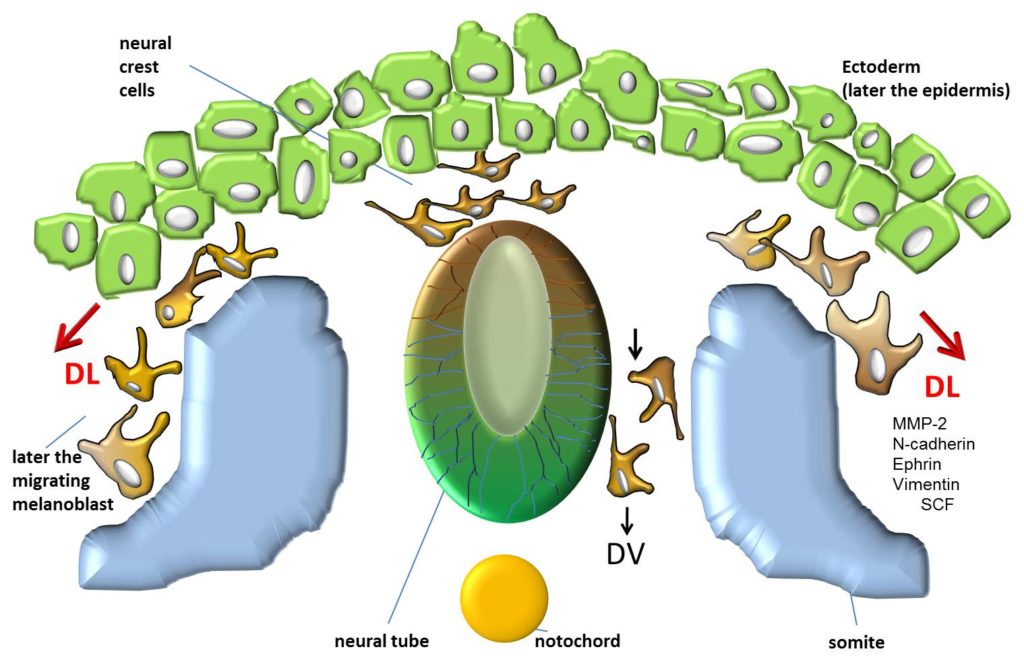AG Kuphal
AG Kuphal
Group Leader:
Prof. Dr. Silke Kuphal
Institut für Biochemie
Lehrstuhl für Biochemie und Molekulare Medizin (Prof. Dr. Bosserhoff)
- Telefon: +49 9131 85-29384
- E-Mail: silke.kuphal@fau.de
Research Focus
We are interested in basic mechanisms of malignant tumour progression and are focused on malignant melanoma.
Malignant melanoma (the “black skin cancer”) undoubtedly represents the most aggressive type of human skin cancer, impressively reflected by the fact that although melanoma accounts for only approximately 4% of skin cancer cases, it is responsible for as many as 74% of skin cancer associated deaths (www.skincancer.org).
Melanoma cells originate from normal and healthy melanocytes, the pigmented cells of our skin which prevent to get a sunburn. The defense mechanism against the sun is a pigment called melanin, which absorbs ultraviolet light and dissipates it as heat.
The normal and healthy melanocytes of our skin in turn derive from neural crest cells during embryogenesis and at a specific point of development these cells are named melanoblasts. Interestingly, during embryogenesis melanoblasts, the precursors of melanocytes, harbour several tumorigenic features like: unrestricted growth, proliferation, adaptation to different micro-milieus, active migration and subsequent invasion through basement membranes, which are all hallmarks of both benign melanoblasts and malignant tumour cells. In embryogenesis these characteristics are strictly controlled whereas in cancer this regulation is lost.

We aim to transfer the knowledge of de-/differentiation processes of melanoblasts to progression processes of malignant melanoma and believe that only a few but critical molecular alterations allow melanoma cells to reinitiate and exploit characteristics of melanoblasts.
We are focused among other molecules on Neuritin 1 (NRN1) which belongs to the protein family of neutrophins. Neutrophins are functionally related proteins serving as growth factors of the nerve system. This growth factor family is also known to be involved in cancer development notably for cancers of neuro-ectodermal origin.
Furthermore, we are working on microRNAs which are differentially regulated between melanoblasts, melanocytes and melanoma cells and want to find out they relevance for melanoma treatment.

